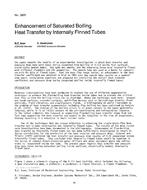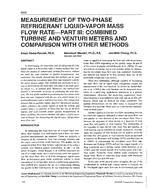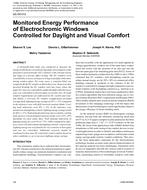The noise and vibration characteristics of duct systems are important to the overall noise performance of HVAC equipment. With the increasing maturity of computational tools, it is now practical to create analytical models of some of the key dynamic characteristics of specific HVAC systems.
The focus of the present effort is to
investigate the applicability of, and develop modeling guidelines for,
current state-of-the-art noise prediction software as applied to “low
frequency†noise in HVAC duct systems. That investigation
encompasses the following overall goals:
- To demonstrate the application of numerical tools in duct
systems comprised of plenums and elbows. - To evaluate this methodology by comparing predicted plenum
Transmission Loss results with test data measured in recent
ASHRAE project TRP-10261 and with appropriate TL equations or
tables in the ASHRAE Applications Handbook2. - To develop general guidelines for numerical modeling of HVAC
systems, identifying critical aspects and limitations of available
modeling technologies. - To highlight the potential role of numerical models in HVAC
system design.
Product Details
- Published:
- 2006
- Number of Pages:
- 87
- File Size:
- 1 file , 1.8 MB
- Product Code(s):
- D-RP-1218


